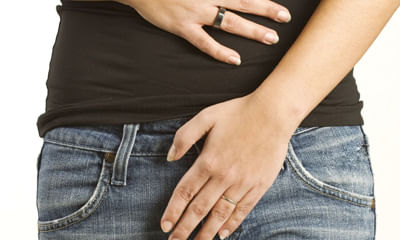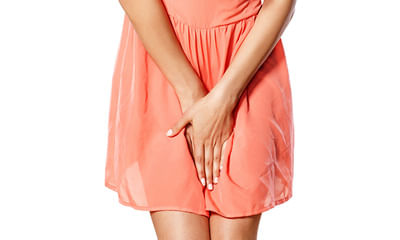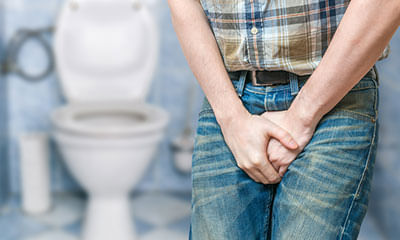Get the App
For Doctors
Login/Sign-up
Health Feed
Find Doctors
Health Packages
AllQ&AsTipsQuizzes
Urine Leakage Health Feed
Asked for female, 43 years old from Jaipur
Share
Bookmark
Report
Bachelor of Ayurveda, Medicine and Surge...read more
Ayurvedic Doctor•Zirakpur
It’s not only remedies but your sincere care about yourself will make the difference. To some weight reduction measures including regular exercise if your choice and yog/ pranayam etc and modify your diet. Light exercise and some yogasans of pedu area are wonderful. Medicine to give strength to organs responsible is of added value. If you stay disciplined, you ll win over. Pl talk.
Health Query
Share
Bookmark
Report
Asked for male, 19 years old from Patna
Share
Bookmark
Report
Asked for male, 23 years old from Jagdalpur
Share
Bookmark
Report
Hi, lybrate user,
•It might be leucorrhoeal thin discharge behaving like urine.
•You have not mentioned your age to suggest you the proper medication, please.
•Consult , privetly for a faster recovery, till, then take, homoeopathic medicine, underlying :
@ Pulsatilla 30ch -5 drops, thrice.
•Avoid , junk food, alcohol and nicotine.
Tk, care.
•It might be leucorrhoeal thin discharge behaving like urine.
•You have not mentioned your age to suggest you the proper medication, please.
•Consult , privetly for a faster recovery, till, then take, homoeopathic medicine, underlying :
@ Pulsatilla 30ch -5 drops, thrice.
•Avoid , junk food, alcohol and nicotine.
Tk, care.
18 people found this helpful
Asked for female, 32 years old from Bareilly
Share
Bookmark
Report
Hello Lybrate user, use homoeopathic medications for your problem to get instant and effective results. Its curable, no need to worry about. Homoeopathic medicines plays excellent role to treat such problems in a hollistic way without any side effect. I suggest you to message me your complete history in private chat with all reports & details & consult online through Lybrate. I will guide you for holistic & effective results with homoeopathy! take care! best regards:)
Asked for male, 62 years old from Vijayawada
Share
Bookmark
Report
I am sorry to hear about your concern but will be happy to assist you.
Urinary incontinence — the loss of bladder control — is a common and often embarrassing problem. The severity ranges from occasionally leaking urine when you cough or sneeze to having an urge to urinate that's so sudden and strong you don't get to a toilet in time.
Let's connect over a call so that we can discuss your concern in details and make a suitable treatment plan for you.
Urinary incontinence — the loss of bladder control — is a common and often embarrassing problem. The severity ranges from occasionally leaking urine when you cough or sneeze to having an urge to urinate that's so sudden and strong you don't get to a toilet in time.
Let's connect over a call so that we can discuss your concern in details and make a suitable treatment plan for you.
58 people found this helpful
Asked for female, 37 years old from Ghaziabad
Share
Bookmark
Report
Since when r you having this problem?
It can be because of infection.
1.You should maintain high grade of personal hygiene. 2.Do change your underclothes at least 2 times a day
3.Wear cotton under garments
4.Stay hydrated. Drink plenty of fluids.
5.Keep the area dry
homeopathy is a very effective for this problem n has very encouraging results. And homeopathic medicines are safe and do not have any side effects at all.
It can be because of infection.
1.You should maintain high grade of personal hygiene. 2.Do change your underclothes at least 2 times a day
3.Wear cotton under garments
4.Stay hydrated. Drink plenty of fluids.
5.Keep the area dry
homeopathy is a very effective for this problem n has very encouraging results. And homeopathic medicines are safe and do not have any side effects at all.
9 people found this helpful
Asked for male, 51 years old from Gurgaon
Share
Bookmark
Report
What type of treatment nd report needed for urine incontinence ,52 years aged male, having diabetes,
I am sorry to hear about your concern but will be happy to assist you.
To diagnose the cause of your urinary incontinence, your doctor will do a physical exam and ask about your past health. Your doctor will ask about what and how much you drink. You will also be asked how much and how often you urinate and leak urine.
Let's connect over a call so that we can discuss your concern in details and make a suitable treatment plan for you.
To diagnose the cause of your urinary incontinence, your doctor will do a physical exam and ask about your past health. Your doctor will ask about what and how much you drink. You will also be asked how much and how often you urinate and leak urine.
Let's connect over a call so that we can discuss your concern in details and make a suitable treatment plan for you.
3 people found this helpful
Asked for male, 0 years old from Begusarai
Share
Bookmark
Report
Age? Since when r you having this problem?
1.You should maintain high grade of personal hygiene. 2.Do change your underclothes at least 2 times a day
3.Wear cotton under garments
4.Stay hydrated. Drink plenty of fluids.
5.Keep the area dry
homeopathy is a very effective for this problem n has very encouraging results. And homeopathic medicines are safe and do not have any side effects at all.
1.You should maintain high grade of personal hygiene. 2.Do change your underclothes at least 2 times a day
3.Wear cotton under garments
4.Stay hydrated. Drink plenty of fluids.
5.Keep the area dry
homeopathy is a very effective for this problem n has very encouraging results. And homeopathic medicines are safe and do not have any side effects at all.
11 people found this helpful
Asked for female, 29 years old from Gangtok
Share
Bookmark
Report
Plz consult your physician and continue your medicine. Otherwise if you want ayurved treatment I have verry good and effective medicine for you. If you are intrested to go throufh ayurved medicine you can confirm tele consultation with me after pay 300 rs consultation fee. We will discuss more about your health issue and its history with detatils. Therefore I can suggest you better medicine.
Book appointment with top doctors for Urine Leakage treatment
View fees, clinic timings and reviews
Ask a free question
Get FREE multiple opinions from Doctors
posted anonymously













